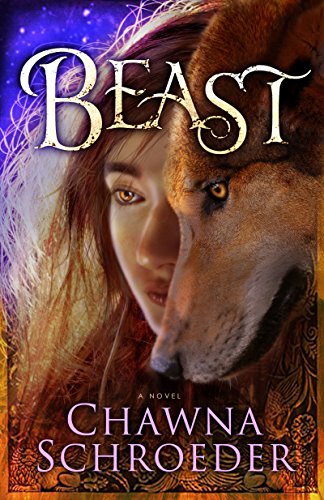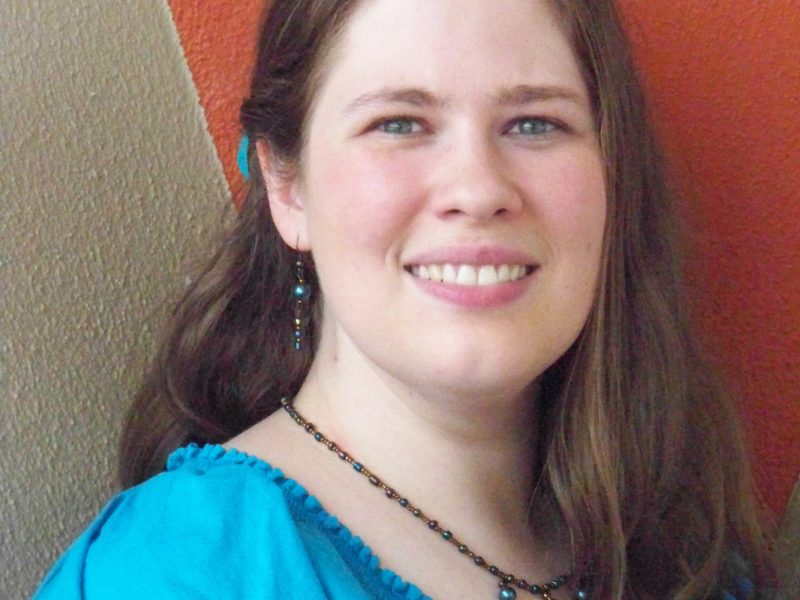Today we have the pleasure of interviewing Chawna Schroeder, one of the newest authors to Enclave! Chawna loves stretching both the imagination and faith through her novels. Living in Minnesota, she dreams of far-off places, daring sword fights, magic spells, and princes in disguise. When she isn’t committing her dreams to paper, you can find her studying the biblical languages, working with fiber, or teaching about the importance of discernment. Her debut novel, Beast, is now available in ebook with the paperback coming out this fall.
Without further ado, please welcome Chawna!
1) When did you realize you wanted to become a writer?
At the age of 6, one of my grand ambitions was to write down the bedtime stories my dad made up for my siblings and me. However, it wasn’t until early 2000, when I was debating what I wanted to aim toward for college, that I took serious the desire to write: I felt restless over other options I was considering, and finally my parents tired of my grumbling. They sat me down and asked me, “If you could do anything—if money or education were not an issue—what would you do?”
My answer, which was simple and immediate, came as complete surprise to me: “Write.”
And the rest, as they say, is history.
2) If you could have dinner with three people, living or dead, who would they be?
Well, my answer today would be Pastor Charles Swindoll, Mr. Rogers, and Kathy Tyers—except I wouldn’t know what to say to any of them and would just sit there like a bump on a log, which would be quite embarrassing and defeat the whole point of having dinner with them.
3) In what ways does your faith impact how you approach writing?
I doubt I can enumerate all the ways my faith intersects with my writing. But because I am boundary pusher writing in a boundary pushing genre, I’m deeply concerned that I’ll someday overstep a boundary that should not be crossed. So my faith is teaching me to approach my writing with open hands, an inquisitive mind, and a guarded heart: Ready to receive any inspiration the Holy Spirit decides to give and free to explore the vastness of my limitless God while testing my ideas, my themes, and my general content to make sure it lines up with Scripture as best as I am able. In short, my faith allows me to push my imagination to its full capacity while exercising discernment.
4) What was your favorite book as a teen?
The Little Princess by France Hodgson Burnett. Not exactly a typical teen read, but I read that book at least once a year and sometimes more often.
5) What are some of the strongest influences on your writing?
In addition to The Little Princess and the Bible, four major influences come to mind:
- My dad’s oral stories were what first sparked the desire to write, and listening to him, along with all the pictures books Mom read to me, taught me the cadence of story.
- The Lion, the Witch, and the Wardrobe was read to me by a first-grade Sunday school teacher, which was my first introduction to Christian fantasy.
- I grew up during the Disney Renaissance of the 1990’s, so their stories are deeply ingrained in my mind. To this day, Disney’s Beauty and the Beast is my favorite movie.
- The Firebird Trilogy by Kathy Tyers opened the world of contemporary Christian science fiction and fantasy to me. Her stories allowed me to see the genre beyond the stereotypical, hard-core allegory of most of the other Christian speculative fiction I had read. Without that trilogy, I probably wouldn’t be writing in this genre.
6) What were some of the challenges for you writing your book?
The restriction in vocabulary was one huge challenge for me. Beast is written from the point of view of a feral child. So she has been taught next to nothing, and her experiences and world are extremely limited. That meant I had to figure which terms I thought she would reasonably know and then work within that basic vocabulary. This made descriptions an added challenge as words we take for granted wouldn’t be known to her. How do you say that her stomach rumbled when she has no idea what a stomach is? How do you describe a horse through the eyes of someone who has never seen one?
A second challenge was the balance between the story and symbolism. I wanted to tell a story able to be enjoyed on its own as a story but would point to deeper spiritual truths for those who have eyes to see. As a result, I settled on a parable-styled story, which paints broad-stroke truths, rather than the more common allegory in which everything means something. However, that meant I had to make the spiritual parallels clear without overplaying them or underplaying them, either of which could potentially lead wrong theology. Only time—and the response of readers—will tell whether I have successfully navigated those rapids.

7) Does anyone else in your family have musical/writing/artistic skills?
Artistic ability on many levels seems to abound in my family. My mother is an expert knitter and seamstress, as well as an excellent organist. My dad is a great oral storyteller. My brother attended conservatory for bassoon, and my sister-in-law (Barbara Quintiliani) is a professional opera singer. My eldest niece (Tatianne Dobbin) is a screenwriter, and my nephew (Nathan Dobbin) is a budding actor, while a second niece is showing talent for beading, among other things.
8) Favorite color?
According to my eight-year-old niece, rainbow is a color, and I would have to agree with her that rainbow is the best color in the world. However, if I’m forced to be more conventional, I would have to pick purple.
9) Do you have a favorite Bible verse?
Isaiah 40, verse 26: “Lift your eyes and look to the heavens: Who created all these? He who brings out the starry host one by one, and calls them each by name. Because of his great power and mighty strength, not one of them is missing.” (NIV) For me this verse captures both the vast majesty of God as well His intimacy with us, concerned with specifics and details.
10) Favorite dessert?
Homemade red-hot divinity.
11) What is one thing you’ve read that you wish you had written, and why?
Ultraviolet by R.J. Anderson. I have been fascinated with synesthesia for many years, and I thought it would be fun to explore the world through a synesthete’s eyes, as it would create a very unique point of view and very unique descriptions of the world. But R.J. Anderson probably did a better job of it than I ever could, making Ultraviolet an amazing and slightly mind-bending read.
***
Thank you, Chawna, for joining us! Here is where you can find her online:
www.chawnaschroeder.blogspot.com
www.chawnaschroeder.weebly.com



Great interview! I am so excited to read Beast.
Wow! I’m honoured, Chawna. Thanks for the kind words about ULTRAVIOLET, and I look forward to reading BEAST!